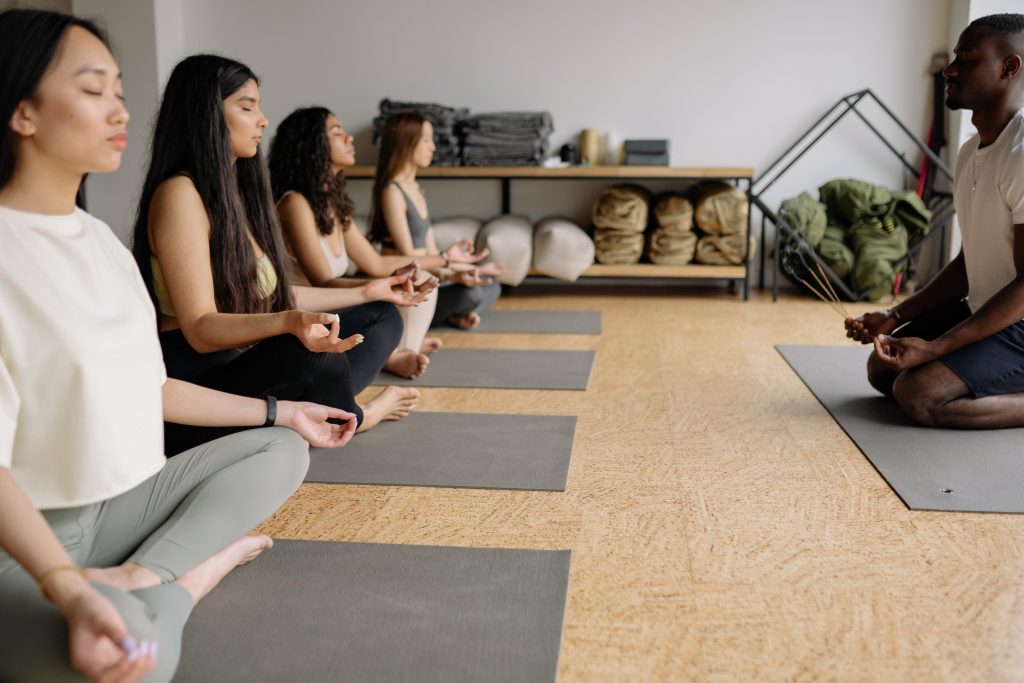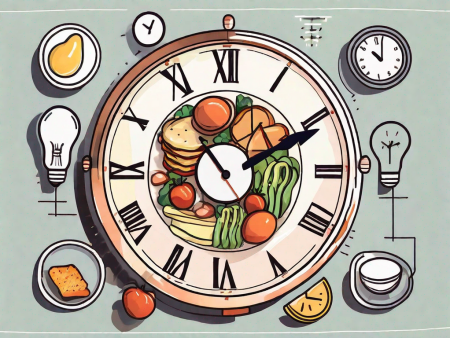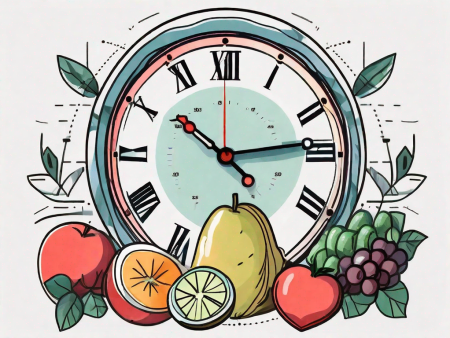Learn how meditation can help lower high blood pressure and improve overall health.
Discover the Benefits of Meditation for High Blood Pressure
Are you tired of feeling like your blood is pumping through your veins at the speed of a racecar? Do you wish there was a natural way to lower your blood pressure without resorting to medication? Well, it’s time to sit back, relax, and meditate your way to a healthier heart. Yes, you heard it right! Meditation is not just about finding inner peace and enlightenment—it can actually help lower your blood pressure too. So, let’s explore the incredible benefits of meditation for high blood pressure and how you can incorporate it into your daily routine.
Understanding High Blood Pressure

The Science Behind High Blood Pressure
Before we dive into the calming waters of meditation, let’s dip our toes into the science behind high blood pressure. When your heart pumps blood, it creates a force against the walls of your arteries. This force is known as blood pressure. However, when this force becomes consistently high, it can lead to various health complications, including heart disease, stroke, and kidney problems.
High blood pressure, also known as hypertension, affects millions of people worldwide. It is often referred to as the “silent killer” because it typically has no symptoms, making it difficult to detect. The only way to know if you have high blood pressure is to have it measured by a healthcare professional using a blood pressure cuff.
When your blood pressure is measured, it is expressed as two numbers: systolic pressure over diastolic pressure. The systolic pressure represents the force exerted on the artery walls when the heart beats, while the diastolic pressure represents the force when the heart is at rest between beats. A normal blood pressure reading is typically around 120/80 mmHg.
Common Causes of High Blood Pressure
Now that we grasp the concept of blood pressure, it’s important to understand the common causes behind this sneaky condition. Stress, a poor diet, lack of physical activity, and genetics can all play a role in raising your blood pressure. But fear not, because meditation might just be the hero we need to keep our hearts happy and healthy.
Stress, a prevalent factor in today’s fast-paced world, can have a significant impact on blood pressure. When you are stressed, your body releases stress hormones that cause your heart to beat faster and your blood vessels to constrict. This, in turn, increases your blood pressure. Finding healthy ways to manage stress, such as through meditation, can help lower your blood pressure and reduce the risk of associated health problems.
In addition to stress, a poor diet high in sodium and saturated fats can contribute to high blood pressure. Consuming too much salt can cause your body to retain water, increasing the volume of blood in your arteries and raising your blood pressure. Similarly, a diet high in saturated fats can lead to the buildup of plaque in your arteries, narrowing them and raising your blood pressure. Incorporating a balanced diet rich in fruits, vegetables, whole grains, and lean proteins can help maintain a healthy blood pressure.
Lack of physical activity is another common cause of high blood pressure. Regular exercise helps strengthen your heart and improve blood flow, reducing the strain on your arteries. Engaging in activities such as walking, jogging, swimming, or cycling for at least 30 minutes a day can significantly lower your blood pressure and improve your overall cardiovascular health.
Lastly, genetics can also play a role in the development of high blood pressure. If you have a family history of hypertension, you may be at a higher risk of developing the condition yourself. However, this does not mean that you are destined to have high blood pressure. By adopting a healthy lifestyle, including regular exercise, a balanced diet, and stress management techniques like meditation, you can effectively manage and even prevent high blood pressure.
The Basics of Meditation
Welcome to the world of meditation, where the mind finds solace and the soul discovers its true essence. In this expansive realm of self-exploration, we delve into the depths of our being, seeking tranquility and inner peace. Join us as we unravel the history, philosophy, and various techniques of meditation, allowing you to embark on a transformative journey of self-discovery.
The History and Philosophy of Meditation
Close your eyes and transport yourself back to ancient times when wise sages discovered the art of meditation. Imagine the serene landscapes of India, where the sacred teachings of the Vedas were passed down from generation to generation. Rooted in various spiritual traditions, meditation has been practiced for thousands of years as a means to connect with oneself and achieve a state of tranquility.
From the ancient yogis who sought enlightenment in the caves of the Himalayas to the Buddhist monks who dedicated their lives to meditation, people from diverse cultures and backgrounds have hailed the profound benefits of this ancient practice. It is through their wisdom and dedication that meditation has evolved into the transformative practice it is today.
Different Types of Meditation Techniques
Now that we’ve unlocked the door to the temple of meditation, let’s explore the various techniques that can help us find our Zen. Each technique offers a unique path to self-discovery and inner peace, allowing us to cultivate a deeper connection with ourselves and the world around us.
Mindfulness meditation, rooted in Buddhist traditions, invites us to be fully present in the moment, observing our thoughts and sensations without judgment. By cultivating awareness and acceptance, we can find solace in the present moment, free from the burdens of the past or anxieties of the future.
Loving-kindness meditation, also known as Metta meditation, focuses on cultivating compassion and love towards ourselves and others. Through the repetition of loving-kindness phrases, we can open our hearts and foster a sense of interconnectedness with all beings, spreading love and positivity into the world.
Transcendental meditation, popularized by Maharishi Mahesh Yogi, involves the use of a mantra to transcend the surface level of consciousness and access deeper states of awareness. By silently repeating a specific sound or phrase, we can quiet the mind and experience a profound sense of inner stillness and clarity.
These are just a few examples of the myriad meditation techniques available to us. Each technique offers its own unique benefits and resonates with different individuals. So, take a deep breath, and let’s embark on this journey of self-discovery, exploring the vast landscape of meditation and finding the technique that resonates with your soul.
The Connection Between Meditation and Blood Pressure
The Role of Stress in Blood Pressure
Picture yourself stuck in traffic, running late for an important meeting, and feeling the stress levels rise. We’ve all been there. But did you know that chronic stress can send your blood pressure soaring? When stress hormones flood your body, your blood vessels constrict, leading to a temporary spike in blood pressure. This is where meditation comes to the rescue by helping you find your calm amidst the chaos.
Stress is a natural response to demanding situations, but when it becomes chronic, it can wreak havoc on your health. High blood pressure, also known as hypertension, is a common consequence of prolonged stress. The constant activation of the body’s stress response system can lead to inflammation, damage to blood vessels, and an increased risk of heart disease.
Fortunately, meditation offers a powerful tool to combat the negative effects of stress on blood pressure. By incorporating regular meditation practice into your daily routine, you can train your mind and body to respond to stress in a more balanced and controlled manner.
How Meditation Affects the Body
Wondering how something as simple as focusing on your breath can have a positive impact on your blood pressure? Well, let’s dive into the science of meditation. When you meditate, your heart rate slows down, your breathing becomes deeper and more relaxed, and your body releases feel-good hormones like endorphins. These physiological changes can help counteract the negative effects of high blood pressure, keeping it in check.
During meditation, your brain enters a state of deep relaxation, triggering a cascade of beneficial effects throughout your body. As your heart rate slows, the workload on your cardiovascular system decreases, allowing your blood vessels to relax and widen. This dilation of blood vessels, known as vasodilation, leads to a reduction in blood pressure.
Furthermore, the release of endorphins during meditation creates a sense of calm and well-being. These natural painkillers not only improve your mood but also help to reduce stress and anxiety, which are known contributors to high blood pressure. By engaging in regular meditation practice, you can cultivate a more positive outlook on life and enhance your overall mental and physical well-being.
In addition to these immediate effects, long-term meditation practice has been shown to have lasting benefits for blood pressure control. Research suggests that regular meditation can lead to structural changes in the brain, specifically in areas associated with emotion regulation and stress response. These changes may contribute to a more resilient and adaptive cardiovascular system, better equipped to handle the challenges of daily life without causing a spike in blood pressure.
Scientific Evidence Supporting Meditation for Blood Pressure
Recent Research Findings
Still skeptical about the power of meditation? Let’s explore some recent scientific studies that provide compelling evidence. Researchers have found that regular meditation lowers blood pressure in both hypertensive and pre-hypertensive individuals. Plus, it can also reduce stress levels and improve overall cardiovascular health. It seems like those ancient sages were onto something, after all!
Medical Community’s View on Meditation for Blood Pressure
Don’t just take our word for it; let’s see what the medical community has to say about using meditation as a natural remedy for high blood pressure. In recent years, doctors and healthcare professionals have increasingly recognized the value of meditation as a complementary therapy. Many recommend it alongside traditional treatment options, highlighting its potential to improve overall well-being.
Practical Tips for Incorporating Meditation into Your Routine

Beginner’s Guide to Meditation
Now that you’re convinced of the wonders of meditation, it’s time to roll out the metaphorical yoga mat and get started. For beginners, finding a quiet space, adopting a comfortable posture, and starting with short sessions can pave the way to a successful meditation practice. Remember, it’s not about perfection—it’s about finding your own unique way to reconnect with yourself.
Overcoming Common Meditation Challenges
Just like any journey, the path of meditation may not always be smooth sailing. But fear not, brave soul, for we have some tips to help you navigate the rough waters. From battling wandering thoughts to finding your meditation groove, we’ve got you covered. So, trust in your inner strength, embrace the imperfection, and let meditation be your guide to a calmer, healthier life.
So, what are you waiting for? Take a moment to breathe deeply, close your eyes, and embark on this journey of self-discovery and healing. With regular meditation, you can not only find inner peace but also enjoy the countless benefits it offers for high blood pressure. Remember, your heart deserves some tender loving care too.







